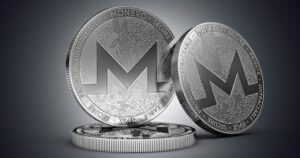
Japanese exchanges will now be required to store customers’ funds offline as part of sweeping changes by Financial Services Agency. Exchanges will also be required to set multiple passwords as part of the new security measures.
Recent hackings in which millions worth of tokens has been stolen have seen the regulator crack down heavily on the sector. Coincheck recently lost $531 million worth of NEM tokens making it the biggest cryptocurrency heist.
Exchanges will also be required to identify customers making large transactions. This is part of the new rules aimed at preventing money laundering, the FSA says.
They will also be required to store customer funds separately from exchange assets, a measure aimed at safeguarding customers from rogue exchanges or officers. An executive for an exchange has previously been charged for diverting funds for private use.
Nikkei reports that the entities will be required to check customer balances several times a day to detect suspicious activity.
16 cryptocurrency exchanges are currently licensed by the FSA to operate in Japan. 16 others were in various states of review although a number have been forced out by stringent requirements.
No Privacy Coins
Digital currencies that provide complete anonymity such as Monero will also be banned according to the Nikkei news outlet. Rumours that the authorities have been putting pressure on exchanges to pull the plug on privacy coins have been floating for weeks now. These are flagged for their potential use in money laundering and other criminal activities.

The five new rules also include a provision to separate management from shareholders. System development roles will also be delineated from asset management roles as part of efforts to prevent manipulation.
The rules will allow the agency to “perform a detailed assessment and identify potential risks in advance,” according to a report by Nikkei. New as well as existing exchanges will be evaluated based on the new rules. Those that cannot comply are expected to close down.
About 100 companies are reportedly interested in getting registered but the regulator will not consider their applications until at least summer.
The agency will now be conducting physical inspections for “those that pass the initial screening to review their system operations and verify the number of employees.”
Japan remains a major cryptocurrency hub in the world allowing for much of the transactions. Bitcoin is recognised as legal tender and authorities have taken a generally progressive view of the industry despite recent crackdowns.

